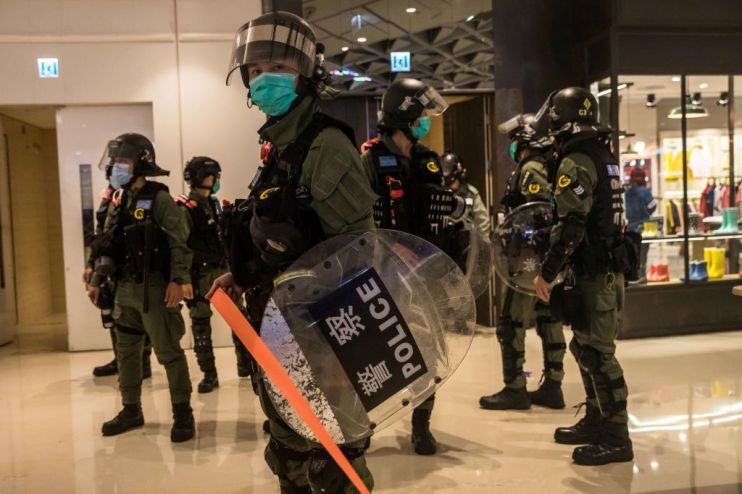Britain cannot stand by in the face of shocking human right abuses across Hong Kong

On 9 March, the All-Party Parliamentary Group (APPG) on Hong Kong, of which I am a vice chair, launched an inquiry into human rights abuses perpetrated by the Hong Kong Police Force against medical and humanitarian workers during the 2019 protests.
One thousand submissions later, we are ready to publish our findings.
Our report, published today, dissects the reality of the shrinking safe space for these crucial workers and touches on the draconian measures that have been implemented to silence the everyday, brave people of Hong Kong.
Having listened to the powerful testimonies given by medical professionals, humanitarian workers, academics, internationally accredited journalists and others and based on the evidence we heard, we made a number of recommendations.
Testimonies included those from a group of first aiders, who described the pressure doctors and medical workers faced while treating patients during the protests, along with intimidation from the police. Such intimidation clearly curtailed their ability to give necessary medical attention to the injured.
The group of first aiders, whose identities will remain anonymous for their safety, recalled the following:
“A large number of police escorted those injured protesters in the hospital. Doctors and nurses working there reported that the police have tried to disrupt the clinical care they provided to the admitted injured protesters… The police insisted on staying and witnessing the consultation, physical examination, and even going into the operating theatre during the operation.
“Our colleagues have explained to the police that patients’ rights and privacy must be protected and declined all those unreasonable requests. The police then intimidated them by the risk of breaking the law, asked for their personal information, including name, position, and even Hong Kong identity card number.”
This harrowing story was not uncommon. In fact, it was supported by hundreds of corroborating accounts.
Our report concludes that humanitarian aid and medical workers have been subject to a variety of treatment that falls short of international humanitarian law and principles, international human rights, and the Sino-British Joint Declaration — including intimidation, harassment, physical violence and arrests.
We also found that there was “no evidence” to suggest that the actions of humanitarian workers in any way justified the Hong Kong Police Force stripping them of the protections to which they are legally entitled.
Ultimately, we found that the Hong Kong Police Force had routinely interfered with medical treatment of protesters, on the street, en route to medical facilities and within hospitals. Consequently, many protesters did not receive the medical attention they required in time, or at all.
The medical care of Hong Kong’s general population was also jeopardised, as the independence and legitimacy of hospitals, ambulances, and medical workers have been undermined by deeply intrusive police interference.
Their actions have also jeopardised the traditional respect in which the Hong Kong Police Force was always held.
The breakdown of trust between police and public was vividly illustrated when one young doctor fearfully told parliamentarians that, as a consequence of even speaking to us about what he had seen and experienced, police officers “could come crashing through my door, I would, disappear and never be seen again”.
That is why our All-Party Parliamentary Group on Hong Kong calls on the UK government to take immediate action. Our report asks the government to impose sanctions on senior Hong Kong officials, including Carrie Lam; to work with international organisations, including the UN, to further investigate the conduct of the enforcement agencies; and to engage with Hong Kong authorities to strengthen human rights protections across the city.
In defence of democracy and in support of Hongkongers, to whom we have a historical, legal and moral duty, the UK must act.
Main image credit: Getty
